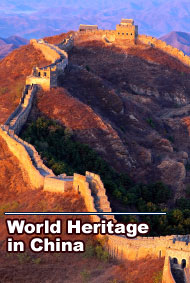
|
|
|
The Dragon Boat Festival
In 2009, The Dragon Boat festival was inscribed on the Representative List of the Intangible Cultural Heritage of Humanity by the UNESCO. Description Beginning on the fifth day of the fifth lunar month, people of several ethnic groups throughout China and the world celebrate the Dragon Boat festival, especially in the middle and lower reaches of the Yangtze River. The festivities vary from region to region, but they usually share several features. A memorial ceremony offering sacrifices to a local hero is combined with sporting events such as dragon races, dragon boating and willow shooting; feasts of rice dumplings, eggs and ruby sulphur wine; and folk entertainments including opera, song and unicorn dances. The hero who is celebrated varies by region: the romantic poet Qu Yuan is venerated in Hubei and Hunan Provinces, Wu Zixu (an old man said to have died while slaying a dragon in Guizhou Province) in South China, and Yan Hongwo in Yunnan Province among the Dai community. Participants also ward off evil during the festival by bathing in flower-scented water, wearing five-colour silk, hanging plants such as moxa and calamus over their doors, and pasting paper cut-outs in their windows. The Dragon Boat festival strengthens bonds within families and establishes a harmonious relationship between humanity and nature. It also encourages the expression of imagination and creativity, contributing to a vivid sense of cultural identity. Criteria for inscription on the Representative List R1: The Dragon Boat festival, comprising ceremonies, dances, performances, games, and the preparation of food and beverages, is carried out in an atmosphere of harmony that strengthens social cohesion, and is regarded and transmitted by the community from generation to generation as part of its cultural identity; R2: The inscription of the element on the Representative List would contribute to the visibility of intangible cultural heritage at the local, national and international levels, promoting dialogue and respect among cultures by offering an example of hospitality that consolidates affection among people; R3: The nomination includes a set of existing and proposed safeguarding measures to be carried out by committed groups, communities and official State bodies encompassing documentation, educational activities, promotion and support to poetry associations and boat builders; R4: The festival was nominated with the involvement of communities, groups and the local government of the city of Xukou, and consent has been given on behalf of the communities concerned; R5: The element is inscribed on the National List of Intangible Cultural Heritage administered by the Department of Intangible Cultural Heritage of the Ministry of Culture. |